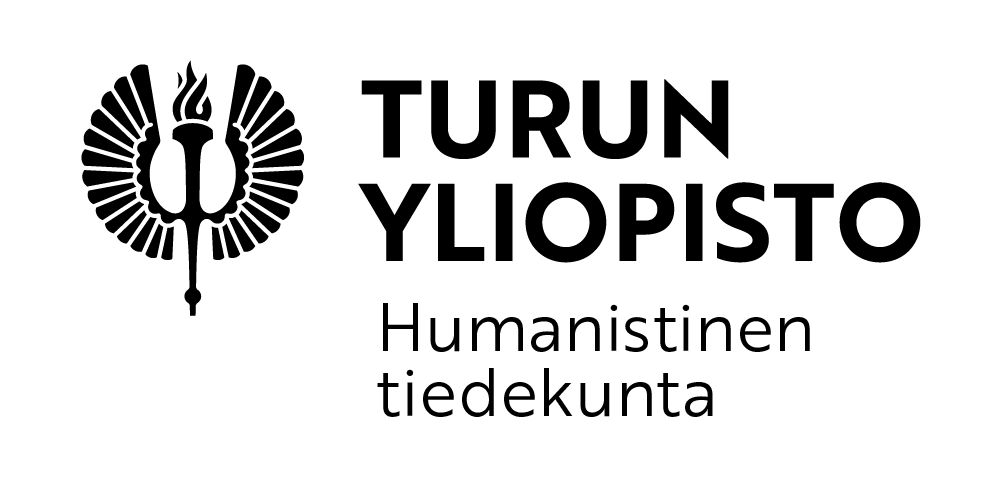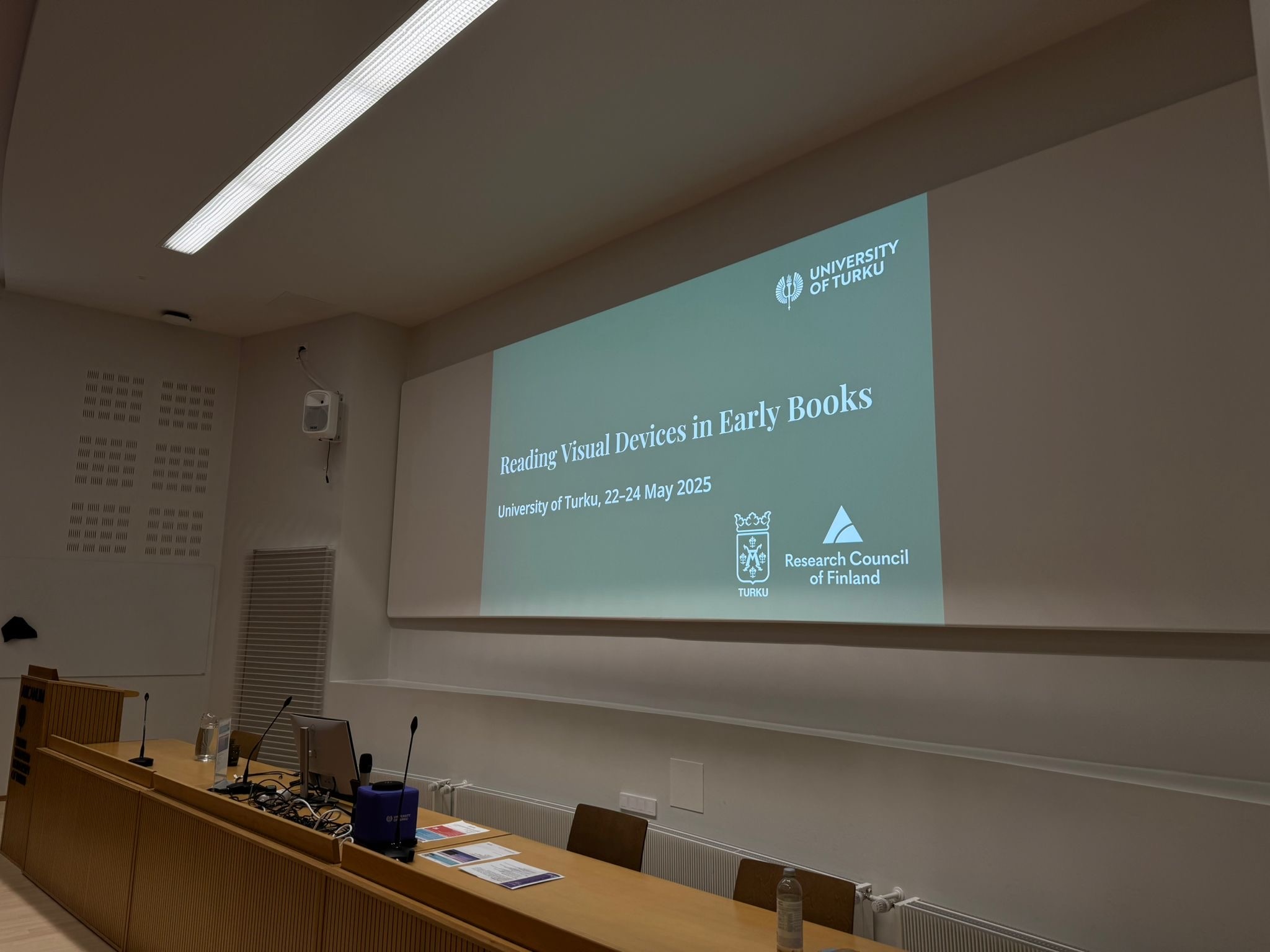An intern’s path in the Emodgral conference
Early modern graphic literacies (Emodgral) is a multidisciplinary research project, with participating scholars from around the world. The theme of this conference revolved around graphic and visual devices, such as charts, diagrams, pictures and tables found in literature, with a focus on the medieval and early periods, and how these devices were used to enhance the books and documents they were used in. The University of Turku had the privilege of hosting the Emodgral conference, giving the researchers an opportunity to showcase their research topics, and simultaneously a chance to get inspired by other peoples’ findings. The conference naturally took place in the humanities building: Arcanum.
As a first-time conference assistant this internship left an extraordinary impression on me. Me and five other students, each in different stages of our studies from first-year to PhD student, were chosen to work as interns assisting the conference. Our journey as interns began over a month before the actual conference. We had an introductory session, where we met Sirkku Ruokkeinen (an avid contributor to the Emodgral project) who was chosen to inform us about our responsibilities, as well as being a helping hand if needed. Within our group we formed additional teams, with tasks regarding event preparation such as the print materials team and the communications team, and tasks involved with reporting on the event in real time such as the social media team and the blog team. Each intern took part in multiple teams, and I found that even the interns not “officially” in my teams would help if needed and vice versa.
Looking back at the event, having everyone take part in multiple teams really aided how smoothly the event ended up going. In addition, each intern would attend a number of sessions, and when not in a session tending the info desk. Each session required two interns and simultaneously there always had to be two interns by the info desk. This was due to the need of always having at least one intern present, and in a situation where one intern leaves to help (e.g. print more materials or help a lost attendee). These turns where decided by our shared schedule, which was composed prior to the conference.
The first day was all about getting the main jest of the conference. All of us interns arrived 3 hours before the conference opening to set everything up. I was assisting in the first keynote, meaning I had to make sure all the electronics were working and the water jug for the speakers was filled in the lecture hall. The lecture hall Aava was chosen since it was well equipped to fit all attendees. In the opening session, in which Rector Marjo Kaartinen, Prof. Matti Peikola and Dr. Sirkku Ruokkeinen declared the conference to have begun, after which the keynote-speaker Prof. Wendy Scase started her session on “Thinking with Visual Devices in a Late medieval Gentry Household”. After the keynote, begun my first info desk shift. The attendees and other interns split into two smaller seminar rooms. Tending the info desk was a lot quieter, but equally as important as being a conference assistant, this was also great time to get to know the other interns and clean up after the coffee break. During the info shift me and my pair faced lots of confused attendees not yet sure where what was.
The second day continued smoothly, with all the interns feeling more confident and the attendees having got more familiarized with the building. I really enjoyed how precise the sessions were. Each speaker had 20 minutes to introduce their topics, after which there was a 10-minute-slot for conversation. To make sure the strict time limits were followed interns held up small signs with the numbers 5, 2, and 0 to indicate how much time was left.
During this day a dinner was held for all the attendees, to which I was able to attend last minute. As a young intern being invited to this sort of a dinner was a great opportunity to converse with remarkable researchers and professors. It was truly inspiring to hear about their career paths and niches, all while connecting with people who could possibly be coworkers someday. It’s strange how the most random things can make you feel inspired but being granted the opportunity to speak with professors from the most prestigious universities around the world such as Columbia, Oxford and Tel Aviv was truly eye opening. I specifically remember our conversations on the present state of the world. With each the professors from a very different parts of the world (USA, UK, and Israel) I got fully a new perspective on how living (and teaching) in today’s situation can be like, and how conflicting their work can sometimes be due to it.
On the third and final day, the conference begun with two sessions and concluded with a keynote by Prof. Andrew Riggsby on “The Segmentation of Roman Documents” and a closing speech by Matti Peikola. During the closing speech he gave credit to the speakers, and the key contributors of Emodgral as well as to my surprise awarded us interns with roses. The speech concluded with Peikola proposing a suggestion to compose a book related on the Emodgral research.
An intern’s responsibilities lie within the more intricate details of a conference, often overlooked by others, but always affecting the flow of the event. However, the feeling of truly knowing you have helped something you believe in reach success even in the slightest can leave one feeling extremely accomplished. As I already mentioned; the Emodgral conference was an amazing opportunity. I especially enjoyed the multidisciplinary aspect of Emodgral, it truly was such a privilege to learn about all kinds of different viewpoints regarding a certain niche, from the musical side to the more political side up to the technical side of early modern graphic literacies. Some speakers even managed to give me ideas for themes I could focus on when writing my thesis. This was an amazing way to get introduced to academia and made the idea of being a researcher – while I still am aware of how difficult and admirable work researchers do – feel more approachable. It felt rewarding knowing I was a part of such a well-executed conference and seeing my help directly reflecting on the flow of events. I would most definitely sign up to assist another conference.
Writer is a first-year English language and literature student.


